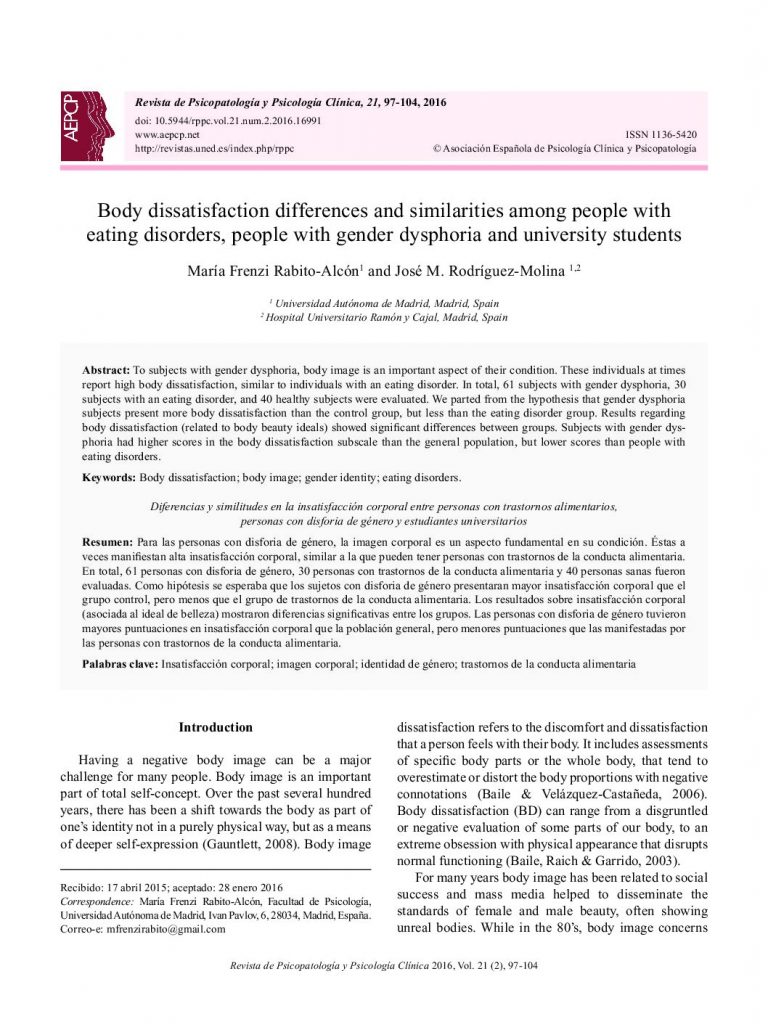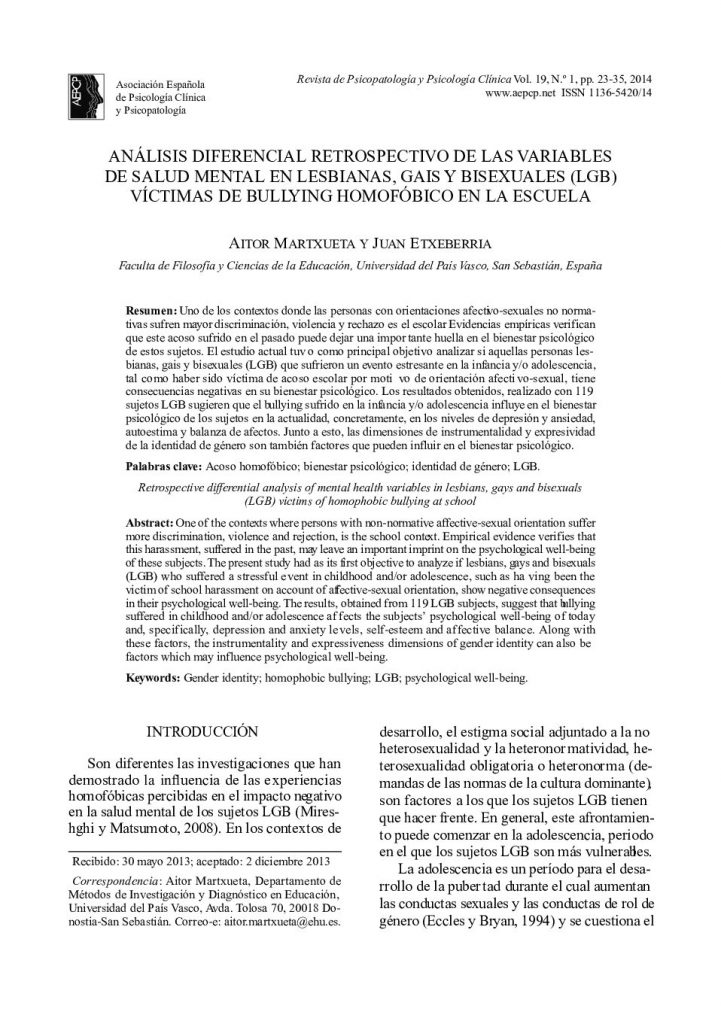Body dissatisfaction differences and similarities among people with eating disorders, people with gender dysphoria and university students.

- Evaluación del bullying como victimización: Estructura, fiabilidad y validez del Cuestionario de Acoso entre Iguales (CAI).
- Body dissatisfaction differences and similarities among people with eating disorders, people with gender dysphoria and university students.
- Sensación de inacabado y experiencias “not just right” como motivadoras de los síntomas obsesivo-compulsivos.
- Funcionamiento del sistema nervioso autónomo y estado de salud en la fibromialgia.
- Burnout y factores estresantes en profesionales sanitarios de las unidades de cuidados intensivos.
- Contribución de la aceptación-rechzo materno y paterno al ajuste psicológico de los hijos: Diferencias entre población clínica y general.
To subjects with gender dysphoria, body image is an important aspect of their condition. These individuals at times report high body dissatisfaction, similar to individuals with an eating disorder. In total, 61 subjects with gender dysphoria, 30 subjects with an eating disorder, and 40 healthy subjects were evaluated. We parted from the hypothesis that gender dysphoria subjects present more body dissatisfaction than the control group, but less than the eating disorder group. Results regarding body dissatisfaction (related to body beauty ideals) showed significant differences between groups. Subjects with gender dysphoria had higher scores in the body dissatisfaction subscale than the general population, but lower scores than people with eating disorders.
Para las personas con disforia de género, la imagen corporal es un aspecto fundamental en su condición. Éstas a veces manifiestan alta insatisfacción corporal, similar a la que pueden tener personas con trastornos de la conducta alimentaria. En total, 61 personas con disforia de género, 30 personas con trastornos de la conducta alimentaria y 40 personas sanas fueron evaluadas. Como hipótesis se esperaba que los sujetos con disforia de género presentaran mayor insatisfacción corporal que el grupo control, pero menos que el grupo de trastornos de la conducta alimentaria. Los resultados sobre insatisfacción corporal (asociada al ideal de belleza) mostraron diferencias significativas entre los grupos. Las personas con disforia de género tuvieron mayores puntuaciones en insatisfacción corporal que la población general, pero menores que las personas con trastornos de la conducta alimentaria.




